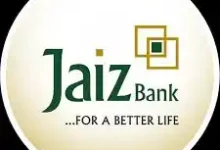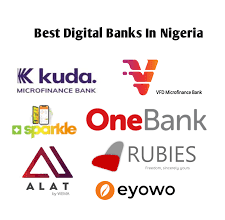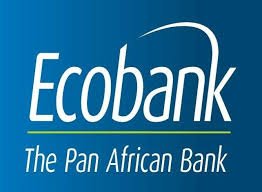Types of Bank Charges you pay in Nigeria, and how to Avoid them
The Nigerian banking sector is one of the very important parts of the Nigerian economy, as it provides the public, access to basic as well as advanced financial facilities.
As banks play a major role in the economy of the country, it is pertinent to know that they must all abide by the rules and regulations laid down by the Nigerian Apex Bank (Central Bank of Nigeria).
In that regard, the central bank has various charges and taxes that must be paid by customers who perform certain transactions in their various banks, most of these charges go to the government while some go to the banks.
Without much Ado, I will list and explain the different kinds of charges you will pay while performing different kinds of transactions with your bank.
THE 5 BANK CHARGES IN NIGERIA ARE:
Electronic money transfer levy
SMS alert charges
Quick balance enquiry charges
Card maintenance charges
ATM withdrawal charges
ELECTRONIC MONEY TRANSFER LEVY
Electronic money transfer levy is a fee you are charged once you receive a deposit of 10,000 naira or more in your account. This fee is for savings account holders and is being charged for every deposit of N10,000 and above.
Charge: 50 naira
ELECTRONIC FUNDS TRANSFER FEE
Electronic funds transfer fee is a fee charged for all transfers between customers, whether done via USSD, ATM, or banking application. You pay this fee when you transfer money from your account to another account.
Below is the breakdown of how the charge is being calculated.
N50 – N5,000: N10 charge
N5,001 – N50,000: N26 charge
N50,001 and above: N50
SMS ALERT FEE
SMS alert fee bank charge occurs when a customer performs some kind of transaction that will require an SMS to be sent to the customer, Examples of this kind of message include, debit alerts, credit alerts, OTP messages and balance inquiries. What is not charged? Birthday messages, general notifications, and other general messages from your bank.
A monthly VAT is also charged for the totality of SMS charges received in a period of one month.
Charge: 4 naira
QUICK BALANCE ENQUIRY FEE
You might have seen a debit alert from your bank stating QBE charges, and then you may be wondering what it means. QBE fee is charged when you use your bank USSD code to check your bank account balance or perform any transaction. for example dialing *894*00# to check your balance on firstbank will incur a bank charge of #10 and an additional #4 as the charge for the SMS received. This is somehow cruel.
Charge: 10 naira
CARD MAINTENANCE FEE
Card maintenance fee is a charge on cards linked to savings account holders. It is charged quarterly (every three months). The Good news here is that card maintenance fee was recently reviewed by the CBN and has been reduced to 50 naira quarterly charges, down from 50 naira monthly charges. This means that you pay 200 naira instead of 600 naira annually.
Charge: 50 naira every three months (quarterly)
ATM WITHDRAWAL FEE
This charge is paid when you perform a withdrawal using a bank ATM other than the bank you’re banking with. Below is a breakdown of how the charge is calculated.
- You’re being charged N35 for the first three withdrawals in a month.
- N10 is being charged for subsequent withdrawals in the same month.
As we can see, there are so many bank charges we have to pay while performing banking transactions. While some are very unnecessary and cruel, some are understandable.
How to avoid Bank charges in Nigeria
As a customer that performs day-to-day transactions with your bank, you’ll have to look for ways to limit the amount of charges you pay, if not, you might end up paying a premium amount in fees and charges.
So you may be wondering what you can do to reduce these charges, don’t worry I will share with you my little tips. I personally use these to reduce the amount I pay in charges.
Avoid frequent use of quick balance inquiry (QBE) to check your balance: Frequent use of QBE can easily accumulate your fees to a large amount, remember you’re being charged N10 each time you dial the USSD banking code. What you should do instead is to login to your Mobile banking application, from there you can check your balance and recent account statements.
Avoid making too much transactions on your account: Remember that you’re being charged 4 naira for each SMS alert that enters your phone because of a transaction you initiated. Stop withdrawing 1000 naira every now and then, it will make your SMS charges accumulate till you end up paying a high amount at the end of the month.
Change bank: I’m serious about that. If you feel your bank is charging too much then you have to change your bank. Based on my personal observations, some banks put more charges on customers than others.
Switch to micro finance banks: micro finance banks can be a good choice for people who perform fewer banking activities. Let’s use Kuda microfinance bank as an example, Kuda doesn’t charge a transfer fee for the first 25 transfers within a month, they also don’t charge an SMS alert fee. So you can use them to send and also receive money without incurring a high amount in fees.








